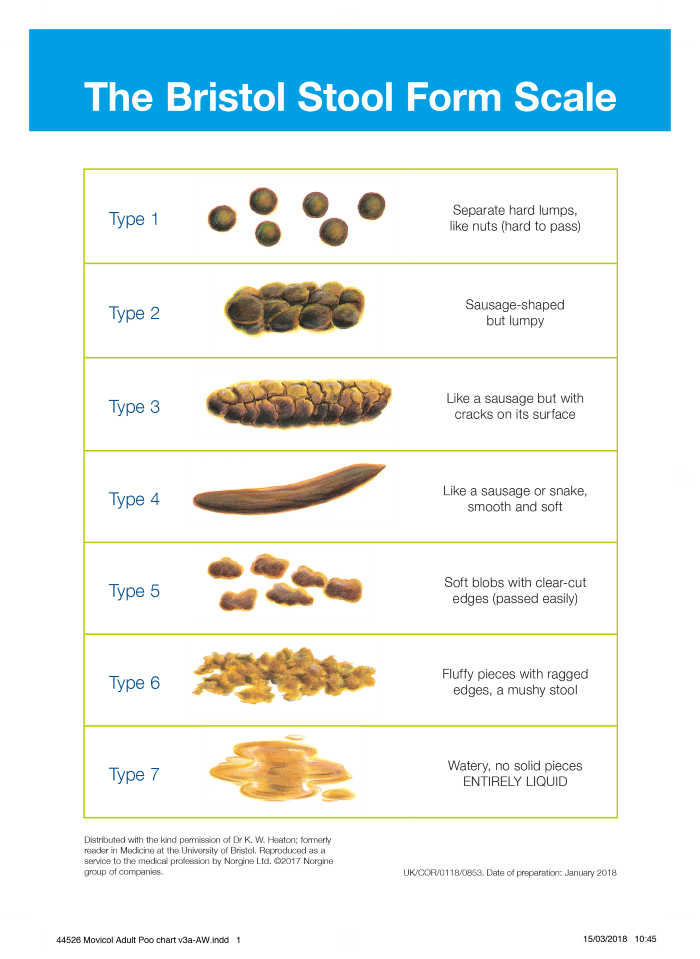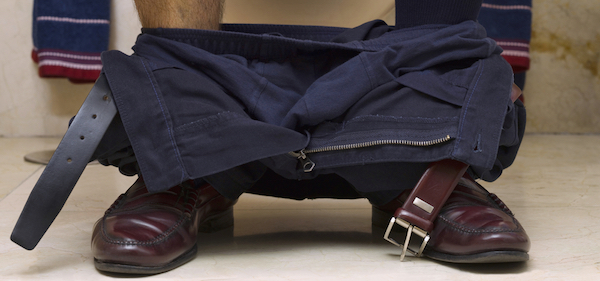Most people simply like to go to the bathroom, flush and leave, preferring not to look at what has been left behind. However, by keeping a regular eye on your stools, you will be quick to realise when something isn’t quite right.
What’s ‘normal’ depends on you, but there is an actual chart that details the appearance of a healthy-looking poo. The Bristol Stool Chart shows what’s normal and what’s not, and it’s worthwhile getting to know the seven types of stools.
So, once you’re confident about what normal is for you, what should you look out for the next time you go?
Small hard pieces/broken up stools
If your stool is hard to pass, then this indicates constipation. Even if you go everyday, a stool that breaks up or several small stools may mean that you may need more fibre in your diet.
Liquid and green stools
You should know this isn’t normal and may mean that you have an infection, which can be common after taking antibiotics, as they can kill off the good bacteria in your stomach. This type of infection can lead to you becoming dehydrated quite quickly, so you should seek treatment from your doctor. If you’re still taking antibiotics, ask if you should stop.
Loose stools but not diarrhoea
This is an indication that something isn’t right in your diet and that your body isn’t processing your food correctly. Although not particularly common, it may be an indication of Coeliac Disease, so you should get your doctor to run a test. You may also wish to consider a gluten-free diet.
Black or bloody stools
This may mean that you have internal (occult) bleeding. It may be something as simple as haemorrhoids, but it could also indicate a stomach ulcer. Consult your doctor as soon as you notice any blood in your stool.
Floating stools
Quite simply, if your stool floats you have too much gas in your digestive system. It may be that you’ve overloaded on gas-producing foods, such as Brussels sprouts and beans. Or you may have an issue with your pancreas. If it persists, get it checked by your doctor.
Thin stools
This is an indication that you’re constipated, and if it’s only for a day or two, then it’s probably fine, but if this persists any longer, you should speak to your doctor. It can be an indication of rectal cancer, where the sphincter can’t open properly.
Persistent diarrhoea and sulphur-smelling stools
Obviously persistent diarrhoea should be checked by your doctor, even if you feel generally well otherwise. If the diarrhoea is coupled with an eggy smell, then you may have a parasite in your gut.

Read more about caring for your gut flora.

